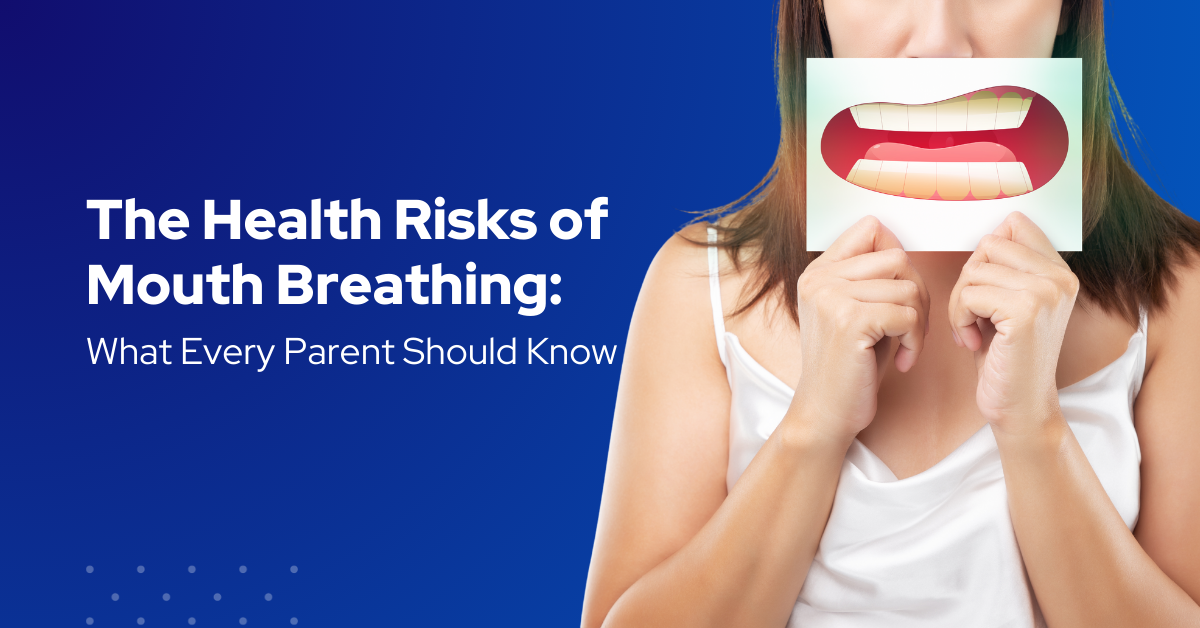As parents, we are constantly seeking to ensure that the health and well-being of our children are up to par. One often-overlooked issue is the impact of mouth breathing, a habit that can have significant consequences on a child's health and development.
What is Mouth Breathing?
Mouth breathing occurs when an individual breathes through their mouth instead of their nose. While it can just be a temporary response to nasal congestion, habitual mouth breathing can lead to various health problems. Especially in children, this poor habit can alter their growth and development, affecting everything from speech to even their sleep quality.
Common Causes of Mouth Breathing
- Nasal Congestion: Allergies, colds, or sinus infections can block the nasal passages, forcing children to breathe through their mouths.
- Anatomical Issues: Structural problems, such as enlarged tonsils or adenoids, can obstruct normal nasal breathing.
- Habits and Environment: Children may develop a habit of mouth breathing due to environmental factors, such as dry air or behavioral patterns.
Health Risks Associated with Mouth Breathing
- Mouth breathing can lead to dry mouth, which increases the risk of cavities and gum disease. Saliva is essential for neutralizing acids and washing away food particles, so reduced saliva production can have a strong effect on oral health.
- Mouth breathing can impact speech development. It may lead to incorrect tongue posture, affecting articulation and clarity. Tongue training devices, like a Spot Pal, can assist in correcting these issues by promoting proper tongue positioning.
- Habitual mouth breathing can contribute to sleep disordered breathing and sleep apnea, a condition characterized by interrupted breathing during sleep. This can lead to daytime fatigue, behavioral problems, and difficulty concentrating.
- Prolonged mouth breathing can alter the shape of the face, leading to a condition known as "long face syndrome." This can also cause dental misalignment and other structural issues.
- Breathing through the mouth can lead to shallower breaths, resulting in decreased oxygen intake. This can affect overall energy levels and cognitive function.
Signs Your Child May Be a Mouth Breather
As a parent, it’s important to recognize the signs of mouth breathing. Look for the following symptoms:
- Frequently sleeping with their mouth open
- Snoring or noisy breathing during sleep
- Dry lips or mouth upon waking
- Signs of dental decay or gum problems
- Difficulty concentrating or daytime drowsiness
How to Address Mouth Breathing
If you suspect your child is a habitual mouth breather, it’s essential to take action. Here are some options to consider:
- Speak with a pediatrician, an ear, nose, and throat (ENT) specialist, or an airway centric pediatric dentist to identify any underlying causes, such as allergies or structural issues.
- Depending on the cause, treatments may include allergy management, removal of enlarged tonsils or adenoids, or dental interventions.
- Teach your child the importance of breathing through their nose. Fun exercises, such as deep breathing or blowing bubbles with their nose, can help reinforce this habit.
- Tongue training devices, like Spot Pal, can promote proper tongue posture, encouraging nasal breathing. These devices can be an effective tool in speech therapy and help correct the muscle memory associated with mouth breathing.
Mouth breathing is more than just a habit; it can have significant implications for your child's health and development. By recognizing the signs and taking proactive steps, you can help your child breathe easier and enjoy a healthier life. If you suspect that mouth breathing is affecting your child, consult a healthcare professional to explore the best course of action.
Remember, promoting healthy breathing habits early on can lead to better health outcomes and improved quality of life for your child. Let's ensure our children can breathe well and thrive!

Share:
Understanding Different Types of Speech Disorders: A Comprehensive Guide
The Importance of Oral Health in Speech Development